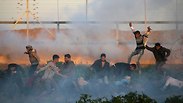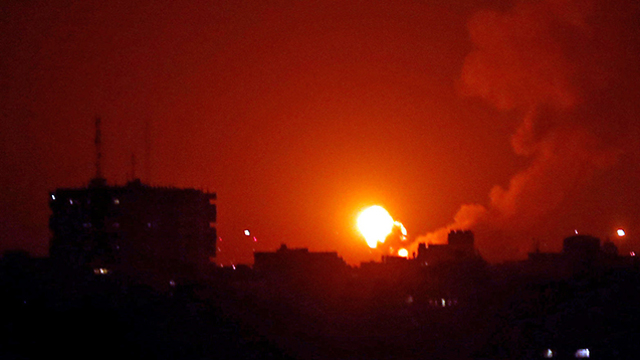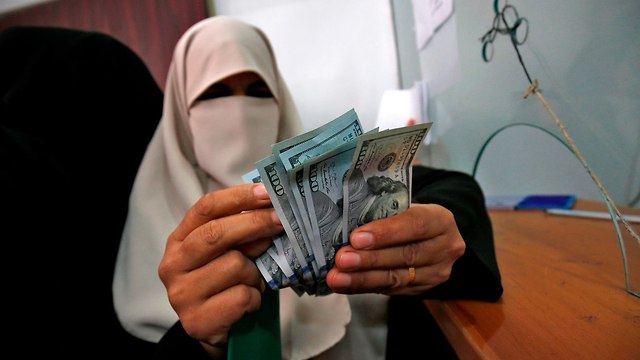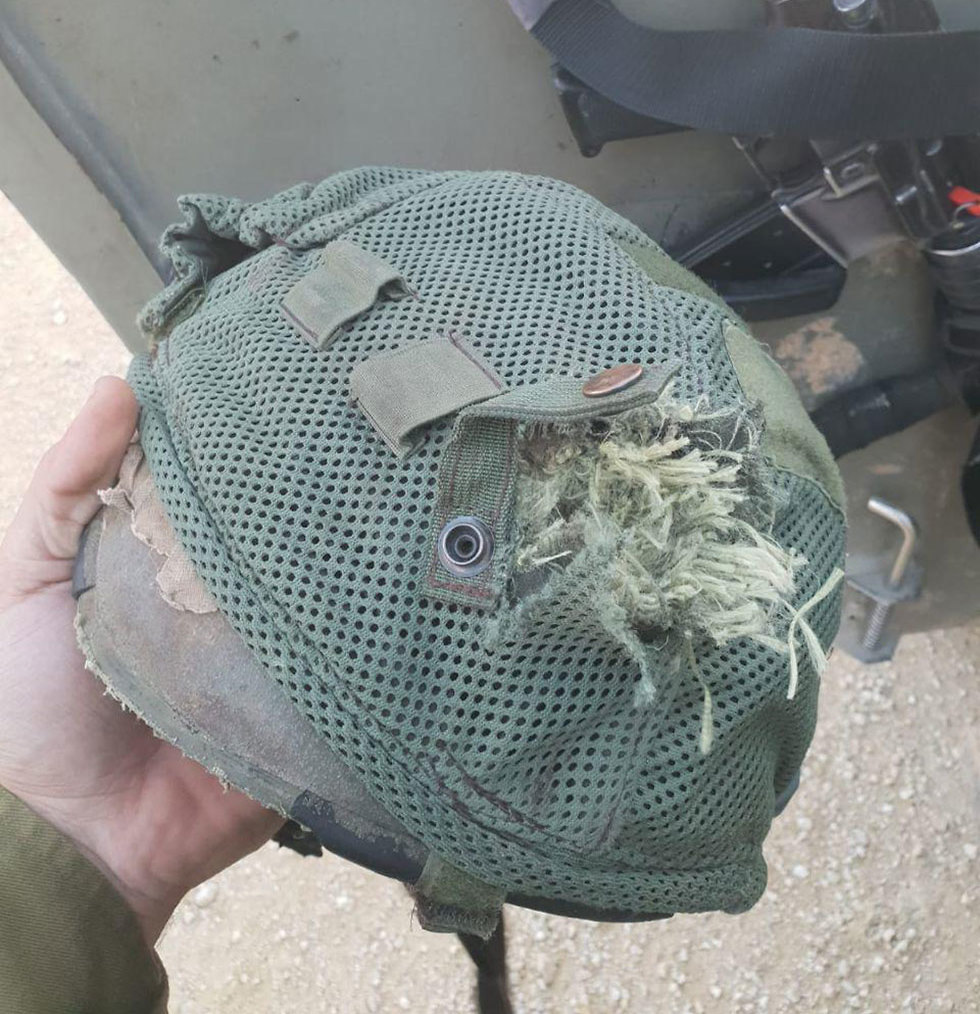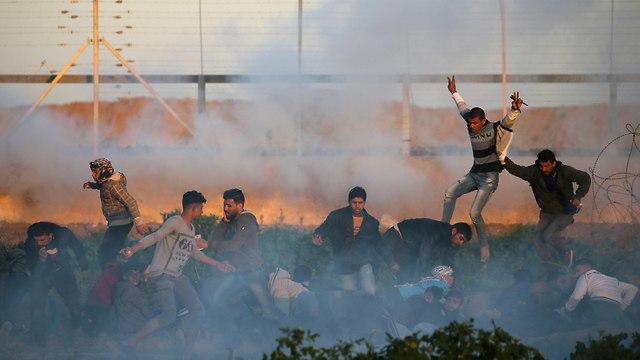
Hoping for the best in Gaza, preparing for the worst
Analysis: The Qatari ambassador is in Israel with suitcases of money, while the deputy UN special envoy tries to ease tensions in the Strip; the level of calm surrounding the demonstrations at the border fence will determine whether the money reaches Gaza anytime soon, while the specter of new violence is ever present.
Massive efforts are underway to stabilize the situation on the Israel-Gaza border. After Tuesday's escalation, in which an IDF officer was lightly wounded by gunfire (whose helmet saved his life) and the Israeli Air Force responded with an attack on Gaza, Prime Minister Benjamin Netanyahu issued an explicit warning Wednesday to Hamas.
"Perhaps there are those in Gaza who thought they could cause trouble. I suggest that those people appreciate that our response would be deadly and very painful. We are prepared for every scenario and every escalation," the prime minister said during a visit to the Shizafon army base in southern Israel.
At the same time, Qatari Ambassador Mohammed al-Emadi, who is tasked with handing over the next installment of a $15 million grant to Hamas, arrived in Israel on Wednesday morning. He could very well be staying for a while. Sources in Israel firmly decline to comment, but it is fair to assume that from the moment of his arrival, al-Emadi has been holding talks with the senior Israeli security officials responsible for this matter, in particular the head of the National Security Council and the Coordinator of Government Activities in the Territories (COGAT).
The money is supposed to pay Gaza's civil servants, but some is also going to families of Palestinians killed or wounded during the regular clashes with the IDF on the Gaza border since March.
Conducting parallel talks with the Gazans is Jamie McGoldrick, deputy to UN special envoy Nikolai Mladenov, who entered the Gaza Strip on Wednesday morning and did not rule out the possibility that al-Emadi would also visit later the same day or the one after.
On Tuesday night, Netanyahu said after the flare-up that he would not allow the money from Qatar to enter Gaza "tomorrow." But there was no guarantee that the money would not enter Gaza on Thursday, Friday or even Sunday.
Iran's Gazan agitators
The Israeli defense establishment believes that Islamic Jihad was behind Tuesday's shooting that damaged the helmet of a platoon commander. Islamic Jihad is the "disturbed child" of Gaza, who does not take anyone else into account. It is utterly illogical that Hamas would carry out such an attack mere hours before arrival of suitcases full of money.
Islamic Jihad, on the other hand, would have no problem at all carrying out the shooting. Its men have not seen a single dollar of the Qatari money, and the group is also ever eager to prove itself to its masters in Tehran. On Tuesday it expressed outrage at Israel, even before shooting at the IDF officer, over a series of sanctions by the Israel Prison Service against Islamic Jihad prisoners in Ofer Prison. It is quite possible that the shooting Tuesday was in response to these sanctions.
Meanwhile, Hamas is keeping its head down, and has not even responded to the killing Tuesday night of one of its military activists when the IDF shelled a Gaza observation post. This silence is no guarantee, however, and some have even expressed concern that it could indicate that any future response would be far more dangerous than rocket fire alone.
There are now several likely scenarios that could play out in Gaza: Firstly, the Qatari and UN efforts will pay off and the third tranche of Qatar's money will reach Gaza on Thursday, Friday or at the beginning of next week. This depends on the degree of restraint that Hamas imposes during the demonstrations at the fence.
The second option is that Israel will insist that the money does not enter Gaza at this stage, and therefore the fence demonstrations are very violent and trigger another round of fighting. The final option is that Hamas will try to lull Israel into a false sense of calm, and then carry out a deadly revenge attack, such as firing a Kornet missile or sending snipers to target Israeli troops.
Israel is undoubtedly hoping for the former, but bracing for the latter two.
